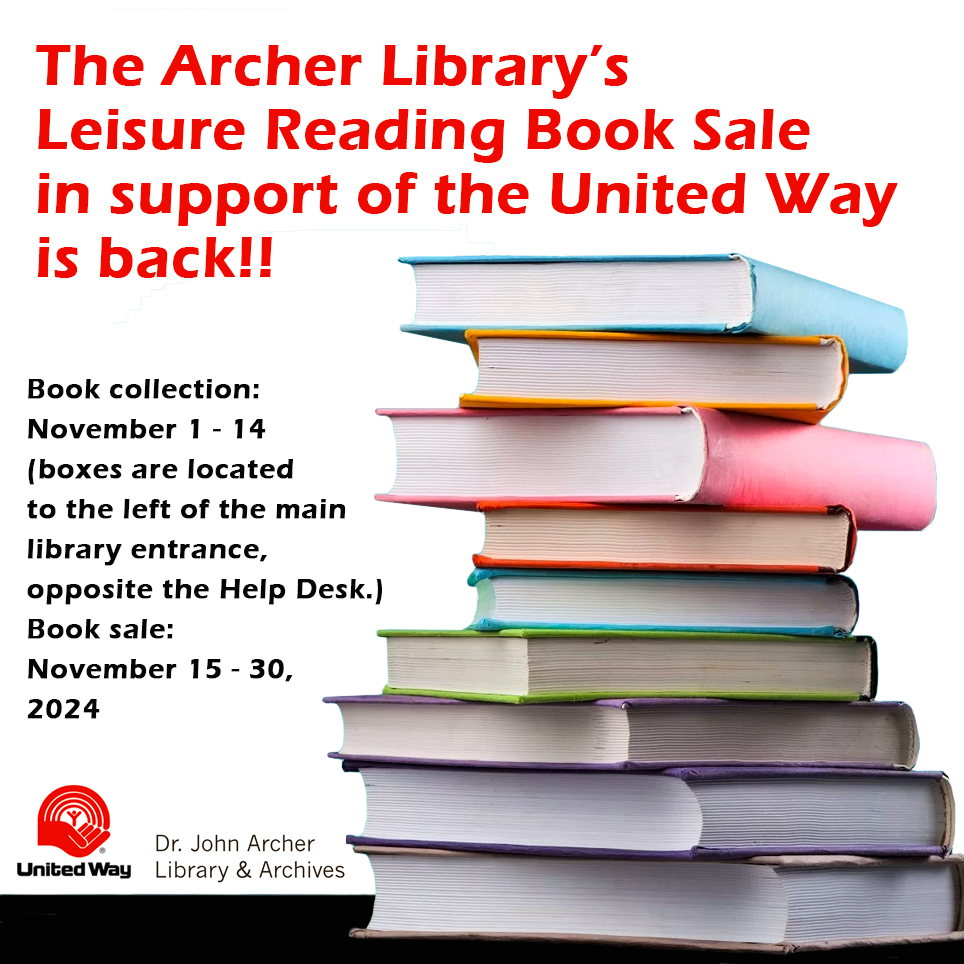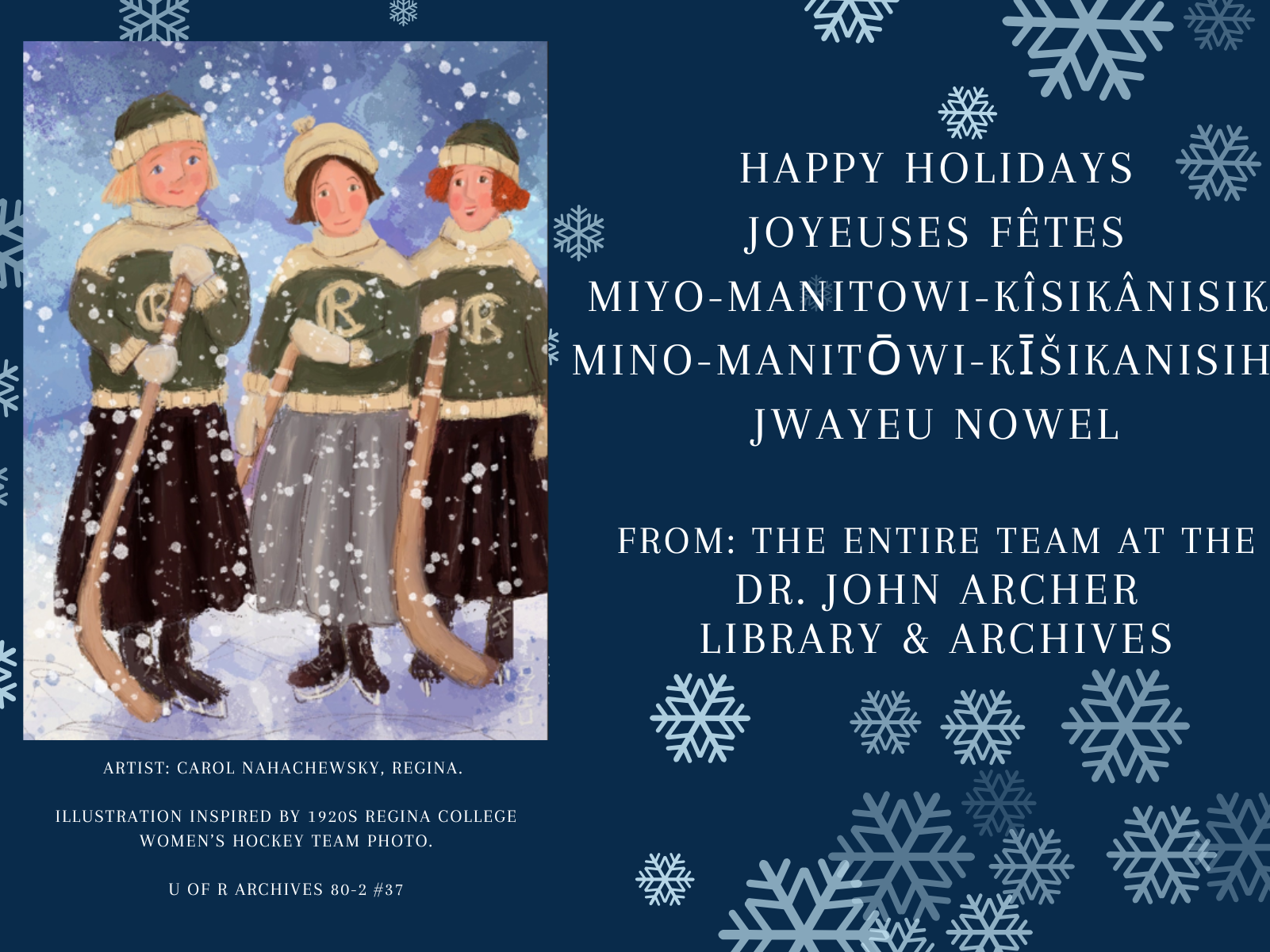
(U of R Archives 80-2 #37)

Something to remember during this busy final exam period: The Archer Library & Archives has live occupancy data available online via the Waitz app, which allows you to see what our building occupancy is at any given time. You can access this information on our website (using the “current library occupancy” link) or you can check the visual display unit in our front entrance on your way in.
For the impatient, the direct link is: https://waitz.io/regina
Waitz uses custom sensors that scan for radio signals (Bluetooth & WiFi) in an area. These sensors pick up laptops, cell phones, wearables, and other connected devices. The total signal activity is analyzed to estimate the number of people in the area.
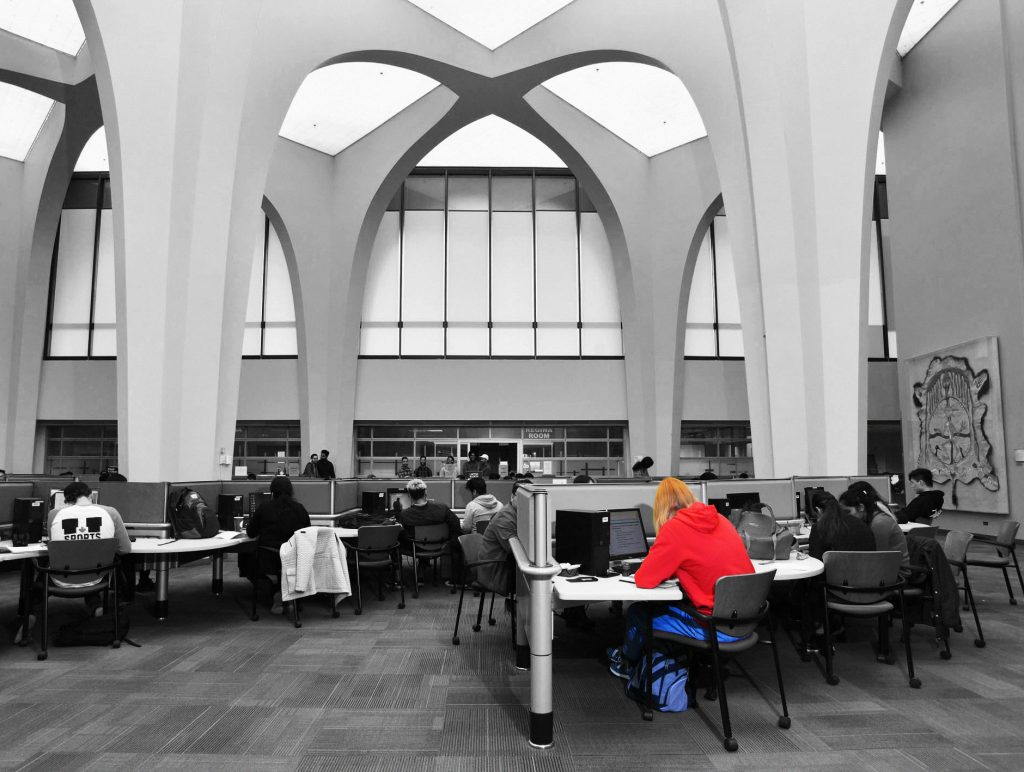
From Sunday, December 8th through Friday, December 20th, the Library will be open until 2:00 am for final exam extended hours of operation. No library services will be provided from 11:00 pm to 2:00 am, but student assistants will staff the Help Desk during this time to monitor the main floor area and provide general assistance.

Starbucks (Archer Library location) hours of operation during this time period will be:
Monday to Friday: 7:00 am – 9:00 pm
Saturday to Sunday: 10:00 am – 4:00 pm
Starbucks will provide free coffee and tea at 9:00 PM Dec. 9-13 and Dec. 16-20.
Thank you to everyone who showed up to yesterday’s Celebration of Authorship, the annual event that spotlights creators from the University community through the Author Recognition Program. The program showcases not only printed text works but a variety of creative or scholarly projects published in various media such as artworks, websites and app development. This past year saw an exciting and diverse crop of new works from University authors, and pictured here are three who presented brief summaries about their creative process: Risa Horowitz, Belan Tsagaye, and Marcel DeCoste. A jazz trio from the Department of Music also performed during the reception.
More information on the Author Recognition Program can be found here: https://library.uregina.ca/authorrecognition
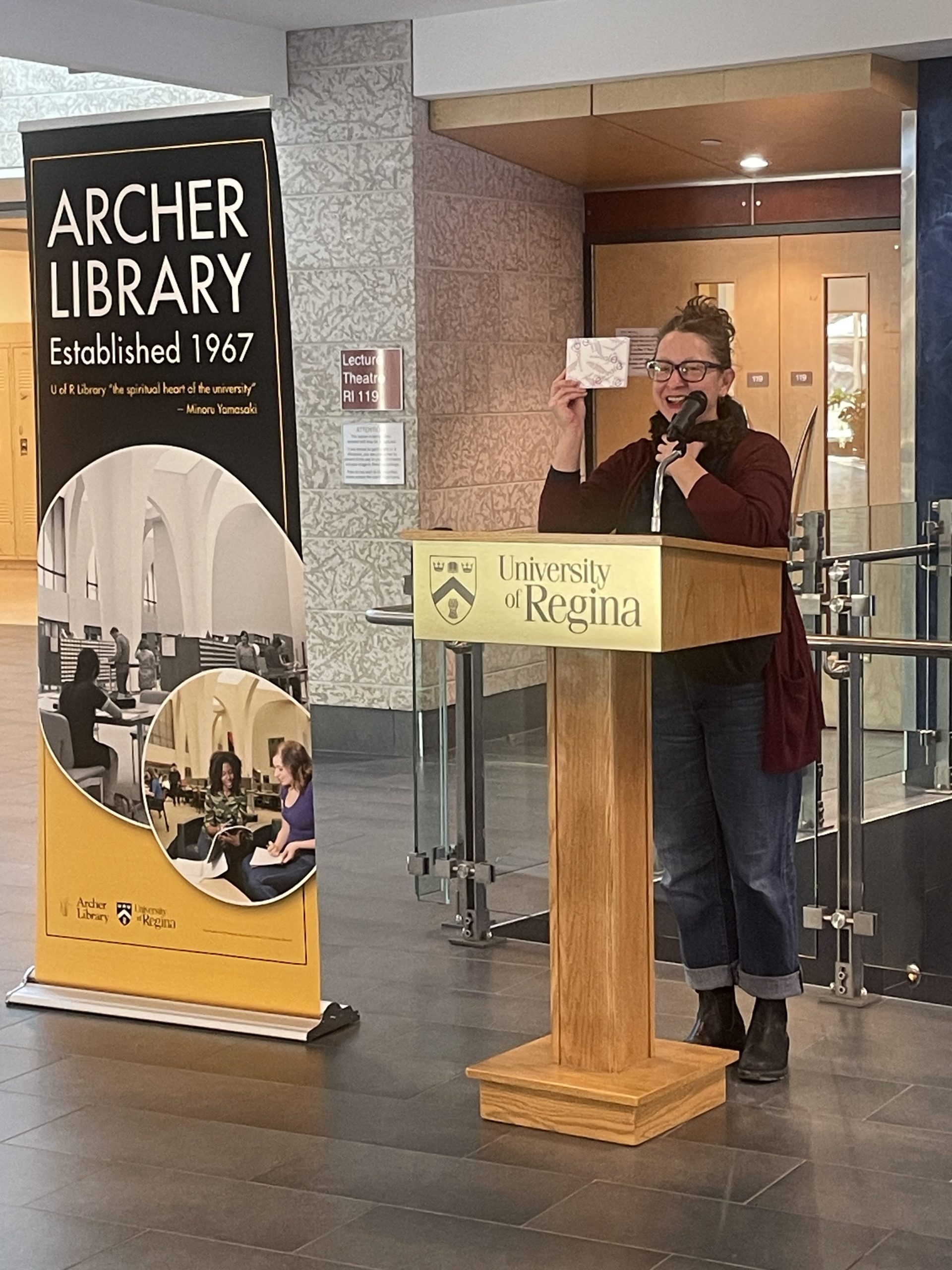
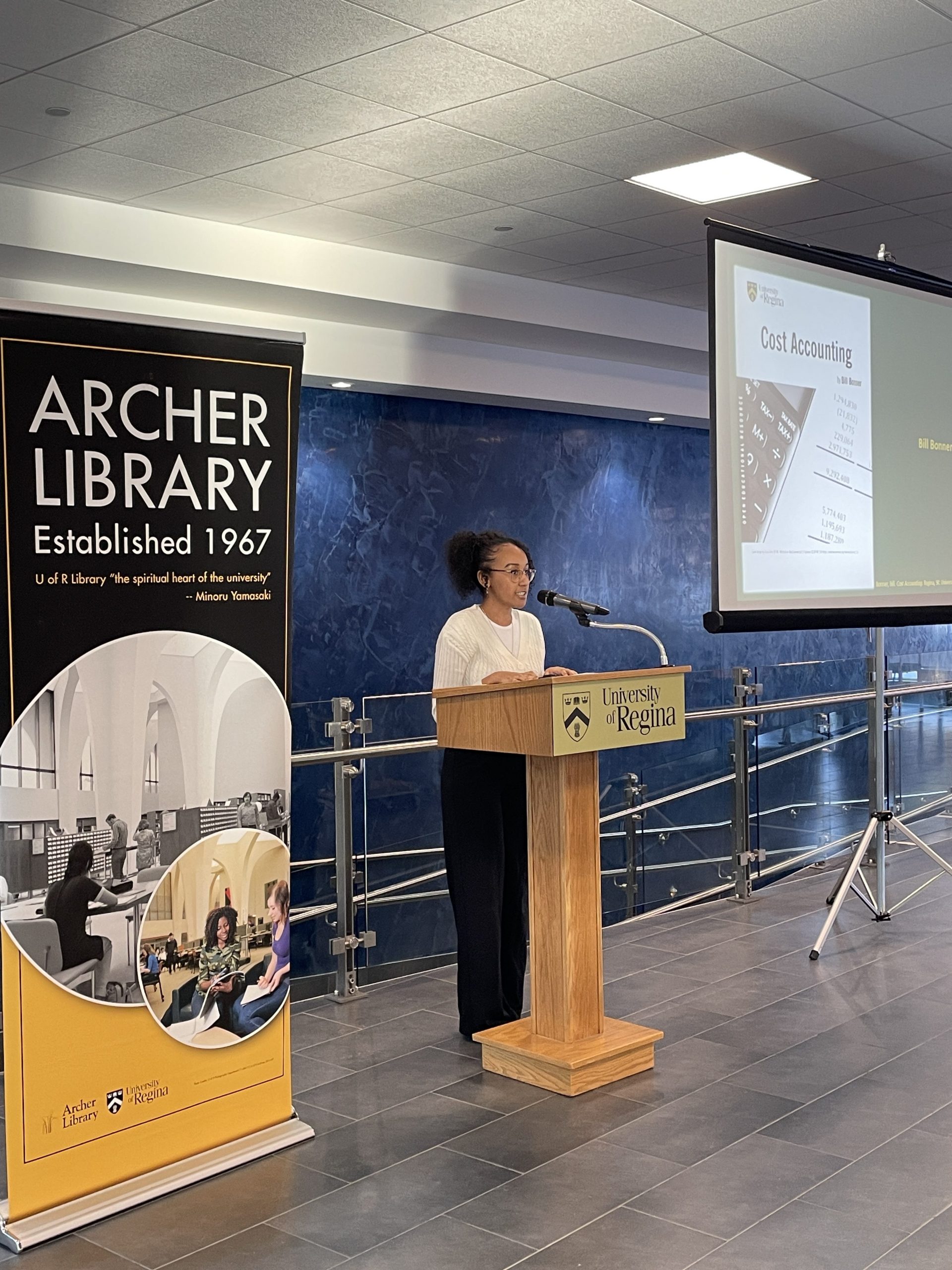
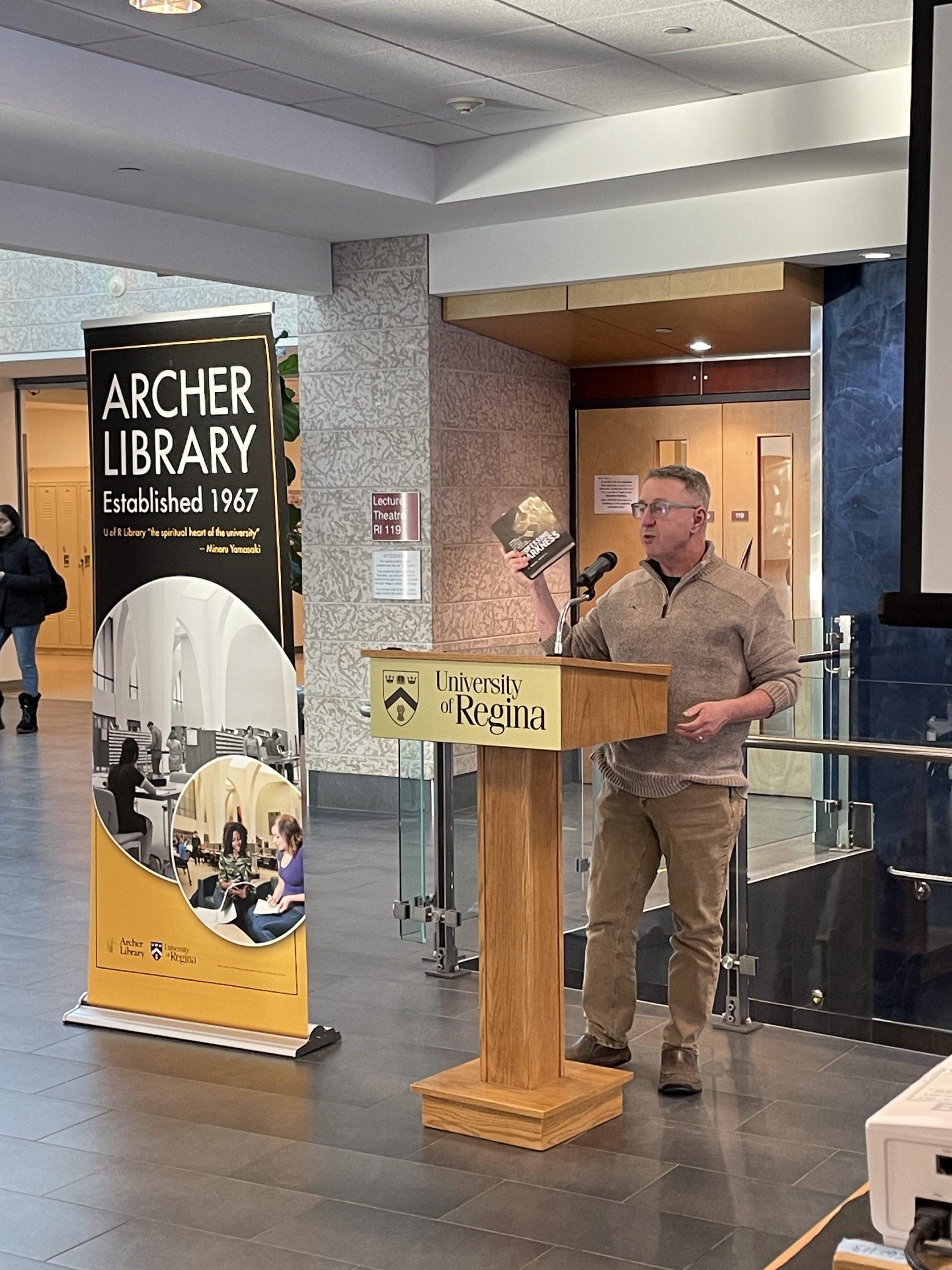
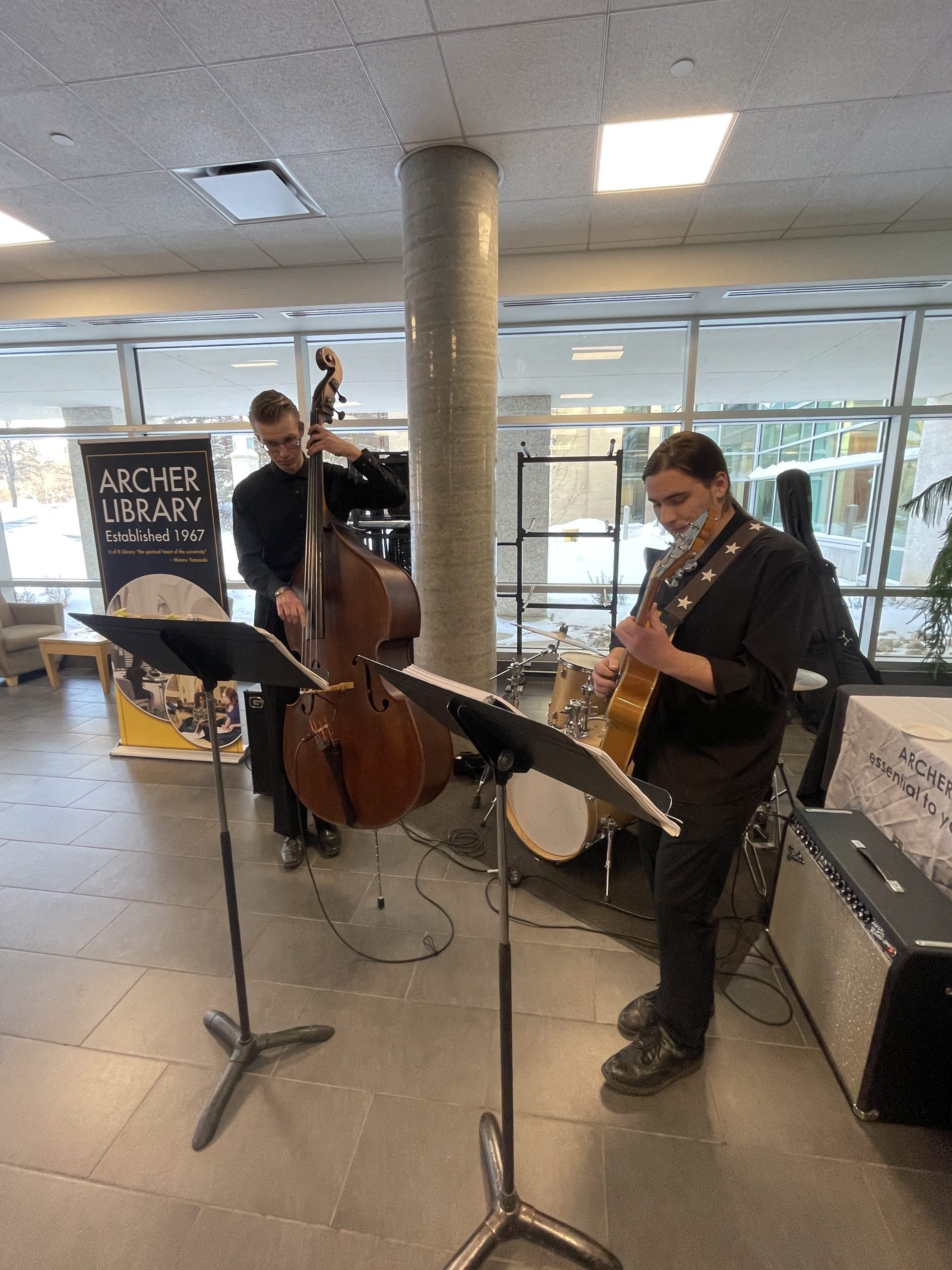
The University of Regina Author Recognition Program is celebrating its 10th anniversary and the Dr. John Archer Library and Archives would like to invite the campus community to join our celebration of 2023-24 University authors and creators.
On Thursday, November 28th from 2:00pm to 3:00pm in the RIC Atrium, please join us to learn more about this year’s recipients, hear some great music performed by student musicians and enjoy some coffee, cookies and conversation!
For more information about the U of Regina Author Recognition Program and Reception, please contact Christina Winter at christina.winter@uregina.ca

Cold weather has suddenly descended upon us, so why not visit our Winter Fest display of seasonal books to read and grab yourself a free snowman bookmark!
But there’s more: Fill out the entry form and tell us your favourite book or movie to win one of 10 library goodie bags! Deadline is Sunday, December 15, 2024, 11:59pm. Contest is open to all registered students!
Check out our online Library Winter Fest guide for the contest entry form and a selection of online eBooks and streaming movies to enjoy:
https://library.uregina.ca/librarycontest/winterfest
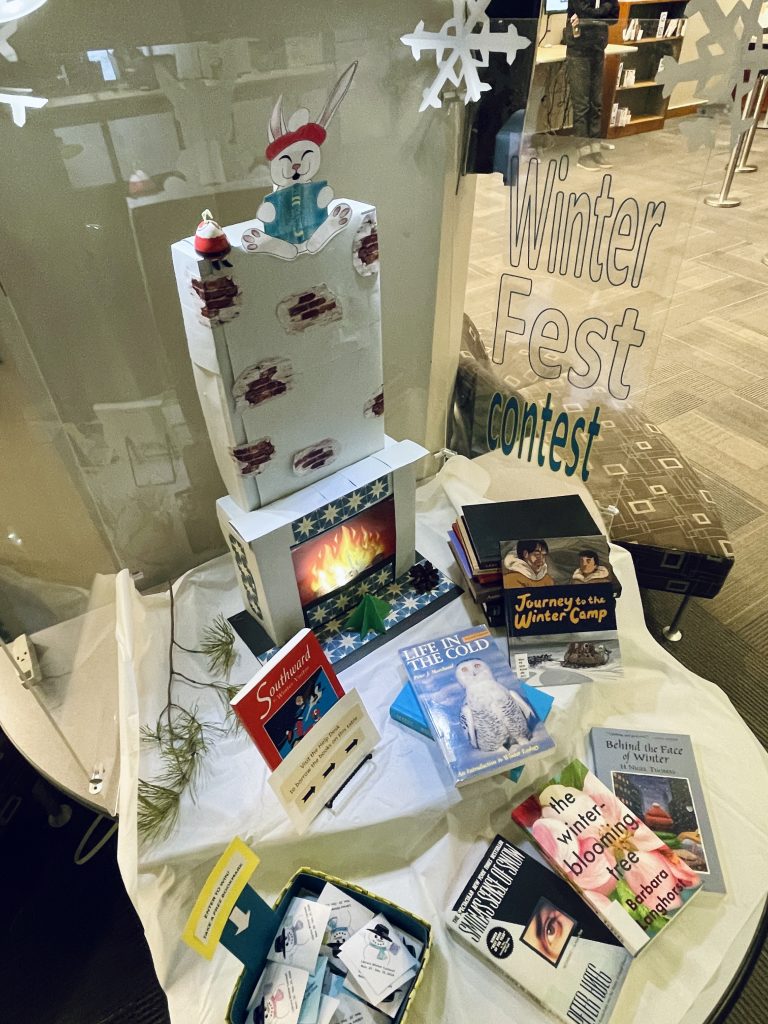
The Archer Library & Archives book sale in support of the United Way started last Friday! Stop by the Archer Alcove (just off Archer’s first floor elevator lobby) between now and the end of November to find a few good reads. There are several hundred titles for sale this year.
Books are $2 each (cash only). Please pay via the wall-mounted box in the elevator lobby.
Thanks to everyone who donated books this year! If you’ve set aside a few for the cause but haven’t yet had a chance to drop them off, the book collection box will be available in the Archer entryway through today.
Thank you for your support! If you have any questions regarding the sale, please don’t hesitate to get in touch with us. Anyone at the main Help Desk can put you in touch with one of the Librarians in charge of the sale.

Due to the current job action taken by Canada Post the borrowing of physical items through Interlibrary Loans is currently unavailable. Requests for digital fulfillment of articles and chapters can still be placed. We will update you in accordance with job action announcements.
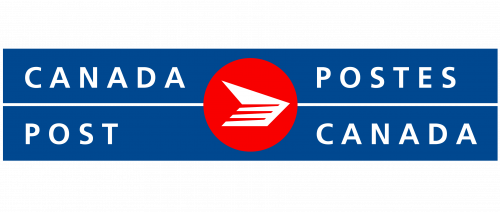
Thank you to all the participants in the 2024 Hallowe’en Contests!
Check out our contest guide to find out the winners of the 2-Sentence Horror Story and Hallowe’en Coloring Contest.
The Runner-Up stories that received one or more votes from our blind-review panel are also included!
URL: https://library.uregina.ca/librarycontest/halloween

Do you have books that need a new home? If so, please consider donating them to the Archer Library & Archives’ collection and sale. Last year’s sale raised over $1000 for the United Way and helped to find new homes for 500+ books. Let’s see what we can achieve together this year!
Donate your books any time between now and November 14th, 2024, using the donation boxes near our front entrance.
Our focus is on gently used leisure books (fiction or nonfiction) – no textbooks, magazines, music or movies please!
Thanks in advance for your support!
